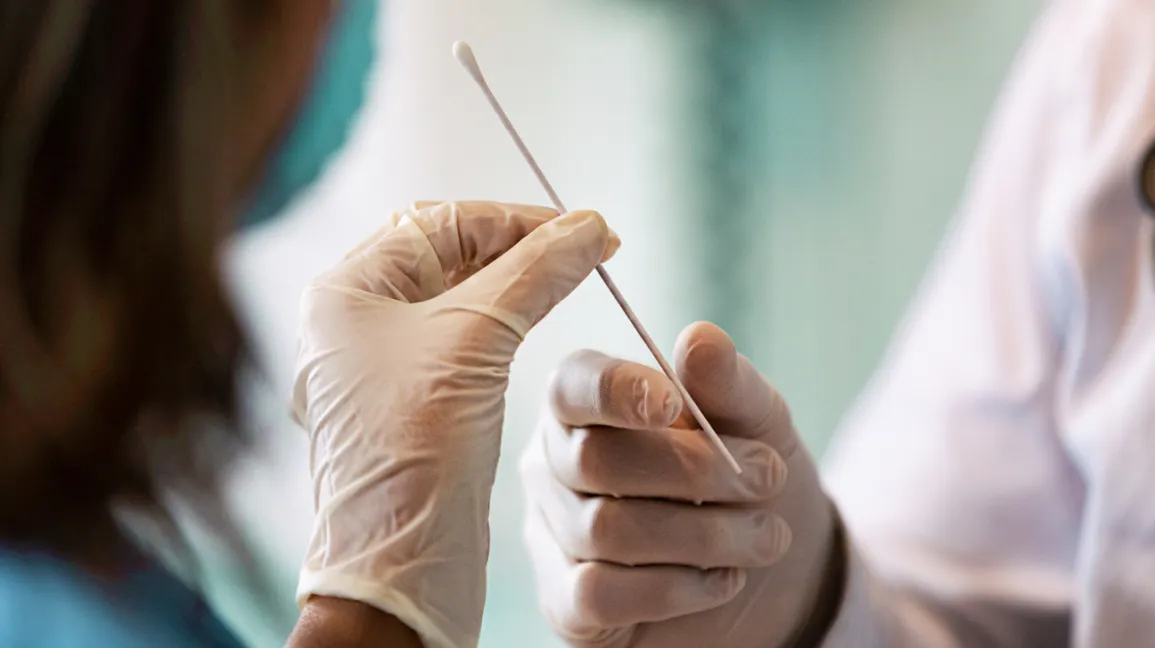The name of this test, the Reverse Transcription–Polymerase Chain Reaction Test, or RT-PCR, comes from its acronym. When it comes to the diagnosis of viral infections like COVID-19 and Ebola, this method is regarded as the gold standard. A laboratory test that amplifies a minute quantity of genetic material, in this case, RNA, from such a pathogen as a virus is known as an RTPCR test in Delhi.
It is an extremely definitive test, which means that if an individual is infected with the virus, there is an extremely good chance that the result will come back positive. This is because the RTPCR test in Delhi is just so precise. The fact that this is the case, nevertheless, indicates that there remains a remote possibility that persons who do not have the illness will have a positive result on the test. This is what’s referred to as a “false positive.” Additionally, RT-PCR has the ability to identify residual viruses even when the person has been cleared of infection.
Why consider the RTPCR test in Delhi?
Conventional RTPCR tests in Delhi can determine the virus after the treatment is finished; however, this may be too much time to wait for covid 19, given the hazards associated with the technique. There are numerous locations that provide Real-Time RT-PCR services; nevertheless, the majority of these locations require approximately three hours to verify the findings.
RT-PCR Test Procedure
-
Sample collection
In order to obtain a sampling of the substance that is found in your respiratory system, a swab would be put into your nose. Once you book an RTPCR test in Delhi, the lab expert will come and collect the sample.
-
Sample preparation
Preparation of the Sample Once the specimens have been received in the laboratory, the experts would extract RNA first from the specimen using purification kits that are readily available for purchase commercially. In the next phase, also known as “one-step RT-PCR,” the sample is inserted into a single reaction mixture that already contains all of the components that are necessary to finish the test. The materials that are used in the mixture are DNA polymerase, DNA building blocks, and reverse transcription along with specific fluorophore probes and primers which help to recognize SARS-CoV-2.
-
Reverse Transcription
Within the reaction mixture, the function of reverse transcriptase is just to transform all of the RNA that is found in the sample into cDNA. This is done so that the results may be analyzed. This comprises RNA from humans, RNA from bacteria, and even RNA from other coronaviruses, as well as the RNA of SARS-CoV-2 if it is present.
The variation of PCR is known as RT PCR, which stands for a polymerase chain reaction. The two mechanisms or techniques primarily use the same process except for the fact that there is one added step to RC PCR which is the reverse transcription (RNA to DNA). This is also known as RT which allows amplification.
Both methods can be carried out in “real-time,” which indicates that the outcomes are observable in a relatively short amount of time, in contrast to the “traditional” method, in which the outcomes are only discernible once the response has been completed.
Conclusion
The Real-Time RTPCR test in Delhi is one that is both extremely reliable and also very quick. It has become even more effective as a result of establishments like Urgent Medical Care & MRI, and as a consequence, speedy testing in New Jersey, as well as other regions with quick Real-Time RT-PCR, is being employed to manage the pandemic crisis that is occurring throughout the country. Check for the best RTPCR test in Delhi and book your test now.







